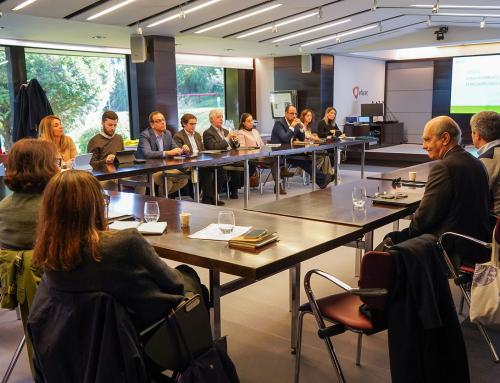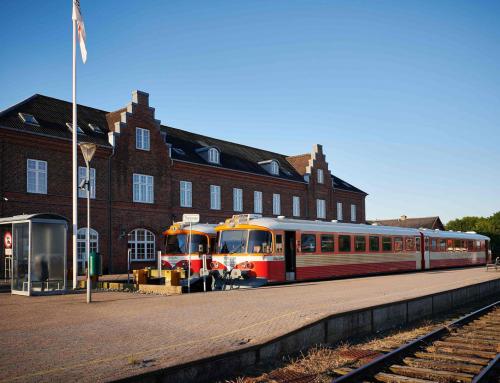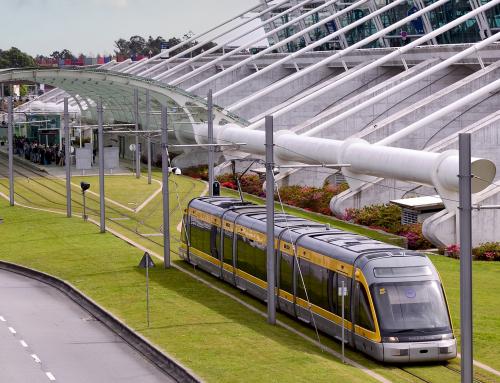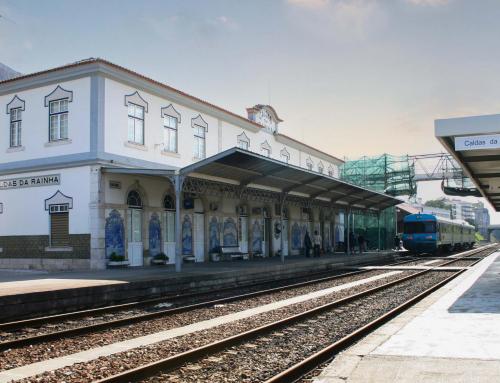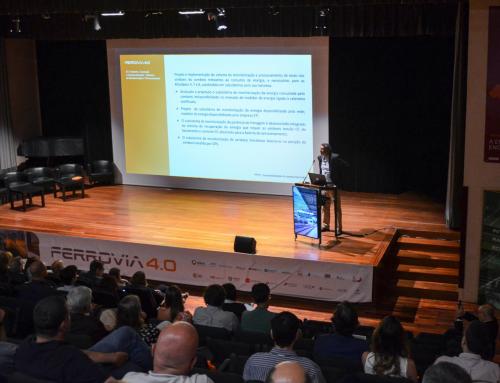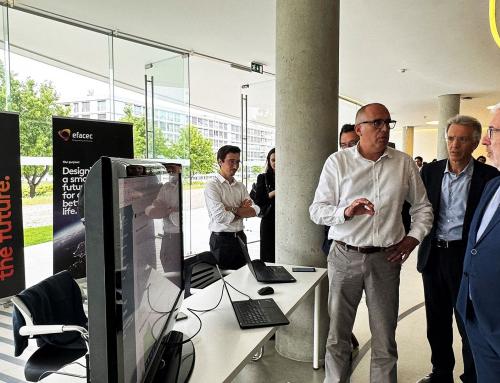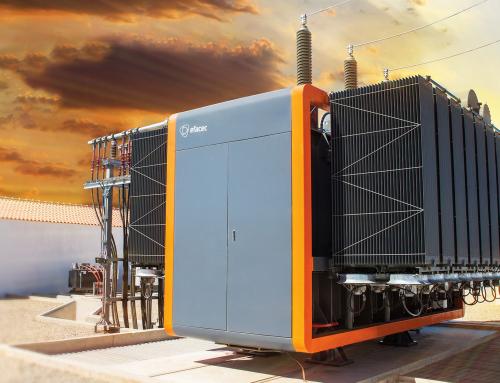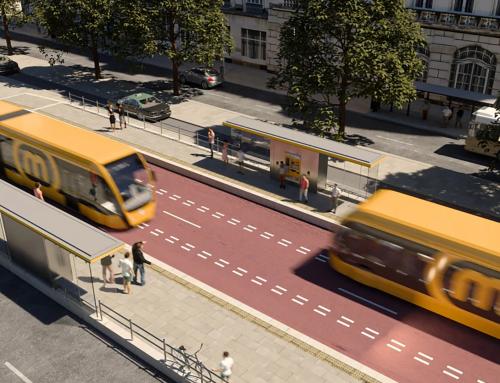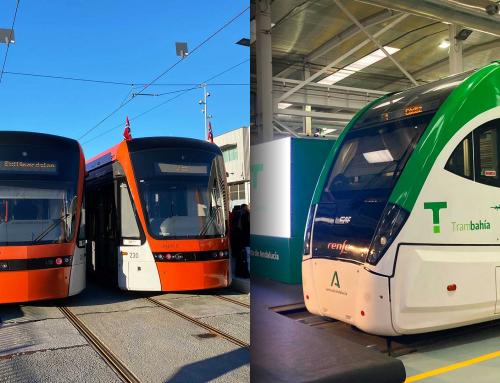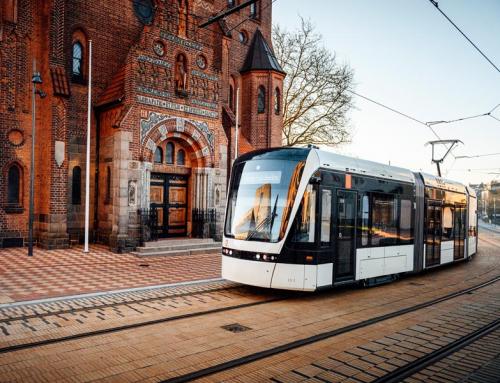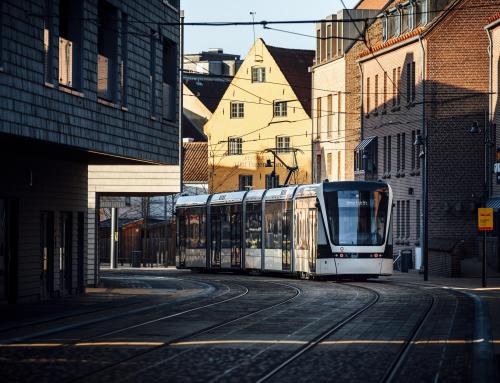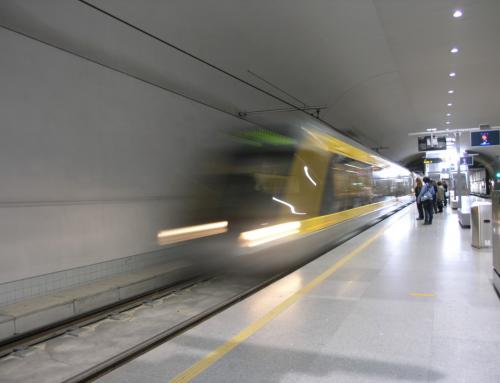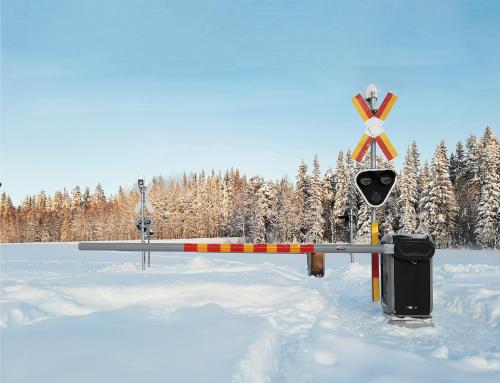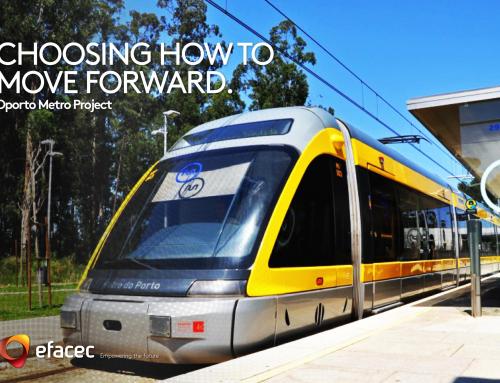Efficient, safe and reliable solutions contribute to decarbonization
Efacec completed the DigiLightRail R&D project, which includes an Automatic Train Protection (ATP) solution based on a unified wireless communication system, as well as an engineering tool that enables the simplification, digitalization and automation of the design, engineering, configuration and testing processes of the command-and-control systems, which aims to eliminate the possibility of accidents.
The solution developed under the Portugal 2020 Program, in partnership with the Institute for Systems Engineering and Computers, Technology and Science (INESC TEC), allows the various functions that involve communication between vehicles and track-side systems to be concentrated in a single piece of equipment, significantly reducing the complexity and costs of installation and maintenance.
The ATP component adds an extra layer of safety, by ensuring compliance with speed limits and signal indications, even in the event of driver error, thus reducing the possibility of accidents. For José Mário Fonseca, Efacec’s project technology manager: “This is another relevant project that the company is developing in the railway sector, showing Efacec’s high sophistication and competence in the area of light rail signalling, by developing safe, reliable and efficient automation solutions”.
INESC TEC participated in the project by developing automation tools, specifically in the component of validation by formal methods.
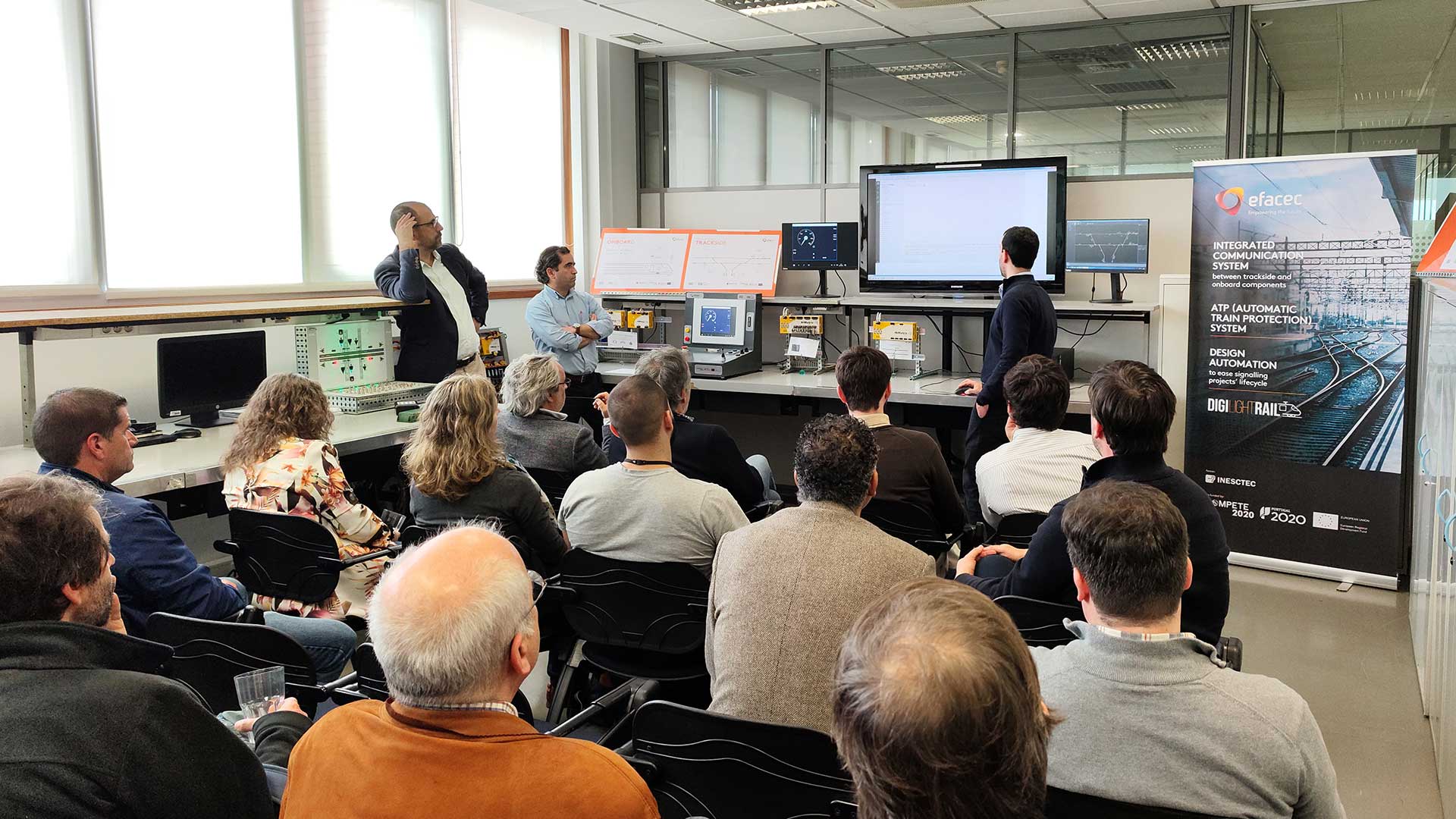
“The partnership with INESC TEC, with whom Efacec has maintained a close relationship for several years, was developed very successfully allowing us to bring solid theoretical knowledge to the industrial world to create a working group with advanced technological skills,” says José Mário Fonseca.
“This project also showed the relevance of the formal methods that are researched at INESC TEC in the development of safety-critical software, as is the case for railways”, adds José Nuno Oliveira, coordinator of INESC TEC and professor at the School of Engineering of the University of Minho.
This solution enables the use of advanced methods and technologies for the simplification and automation of vehicle control. It consists of combining modern sensing and monitoring systems with Efacec technologies, offering a safe, reliable and efficient automation solution and placing the company at a level of high sophistication and competence in the area of light rail signalling.
These projects were followed by multiple similar works in different geographies such as Messina (Italy), Tenerife and Cadiz (Spain), Algiers, Oran and Constantine (Algeria), Nottingham (United Kingdom), Rio de Janeiro (Brazil), Dublin (Ireland), Bergen (Norway), Odense (Denmark) and, currently, the extension of the Yellow Line and the new Pink Line of the Porto Metro (Portugal).




